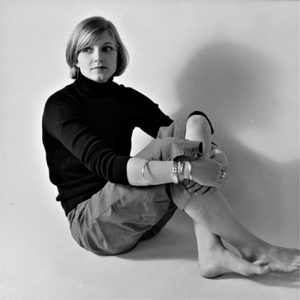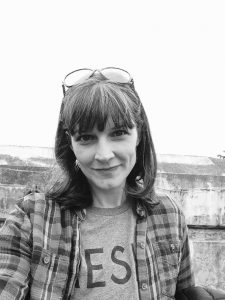I’m not sure I have a quick answer to this question. Most of my stories begin in setting, in a visual image I have in my mind of a specific place at a specific moment in time. Something must strike me about the place–it must sink some hook into me so that I feel excited about writing a story in that place. Character and plot emerge and develop from there. My writing is going through something of a midlife crisis at the moment, though, and what inspires me is shifting. I might have a different answer to this soon.
I attended Mineral during the first summer of residencies. It was magical from the start. I loved the wide, open space and high ceiling of my room. I loved the way the light flooded in through the huge school-room windows every morning. I took solo runs every morning, came back to coffee and breakfast waiting, and then spent the day working. I was amazed at how productive I could be with whole days to write! I finished a first draft of a collection while I was there.
What do you look forward to as a dorm mother for this summer’s residency?
I’m just completely delighted to have a chance to spend some more time in Mineral, and I’m looking forward to meeting this summer’s residents. (Maybe this is the year I’ll finally swim in Mineral Lake, too… )
What are you working on now? Another collection? Do you have a desire to write a novel?
I finished a collection early this spring, so I’m back to that strange vacancy of not clearly knowing my direction. I’m writing individual stories and essays, and I’m hoping something calls to me soon, and maybe it will be a novel, but I don’t know. To be honest, I have a lot of tension about that question–“Do you have a desire to a write a novel?” Novels are, of course, what is expected of a prose writer. Stories are seen (unreasonably, in my opinion) as the appetizers–pleasant and maybe more artful than a novel, but definitely neither as satisfying nor as difficult to make. I get frustrated with this view and with the way it seems to see those who write stories exclusively as “fiddling” hobbyists, not real writers. I wrestle with that idea and with trying not to internalize it.

I think I’m becoming–oddly!–a self-determined defender of the short story as a form, but I do truly love the short story for both its freedoms and its confines. A story can experiment with the elements of fiction in ways (because of its length) that a novel cannot. And (because of its brevity) a story must be precise and carefully packed, written with an intentionality on the sentence level that most novels don’t possess. I love all of this as a reader of stories, and as a writer of stories I still find story construction so exciting. I don’t know if I’ll write a novel next (or ever), but I will definitely keep writing short stories.
As a teacher, how do you balance writing with teaching? Is there anything you’ve learned about yourself as a writer through the act of teaching others how to write?
I’ve been teaching now (unbelievably!) for almost two decades. I think what I’ve learned is simply to redefine what balance looks like. Teaching fulfills my creative self differently than writing does, but it does fulfill it, so it’s harder for me to have the creative energy writing requires during the times when I’m expending that energy on my classes. I used to worry about that, but I’m happy to have “seasons” that an academic life offers me. I get most of my writing done during the academic breaks, and that works well. Of course, I’m also a parent of two young children, and so the real balancing act for me is about meeting my family’s needs and also getting time to write. That’s getting easier as my children get older, but it’s the real challenge. I think both teaching and parenting have taught me to be a better writer for a number of reasons, a simple one being the forgiveness I can now extend to myself when a draft fails or somehow doesn’t meet my own expectations. I’ve been telling my students and my children for years now that failure is the way we learn, and I’m glad the lesson is finally sinking in for me too.






